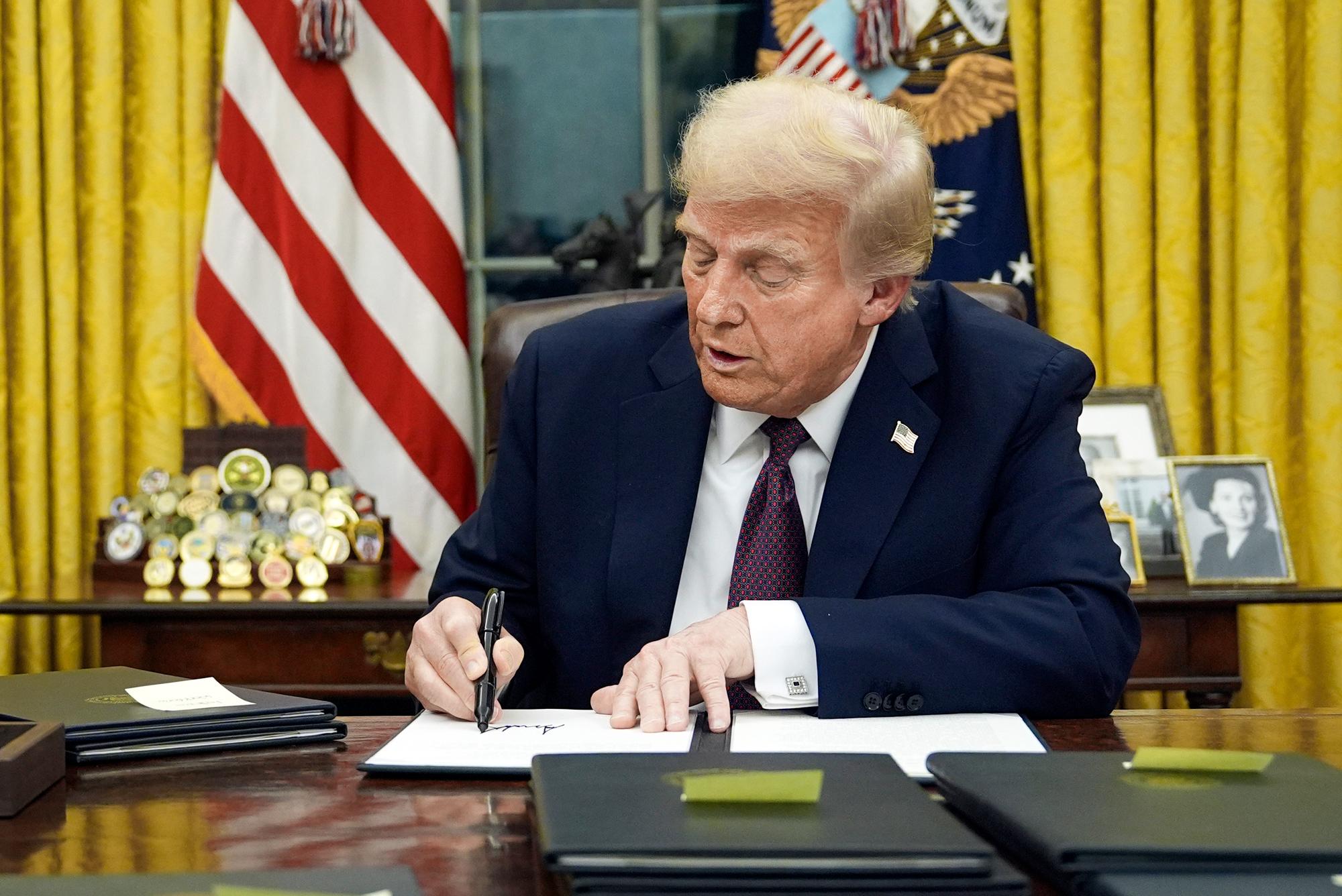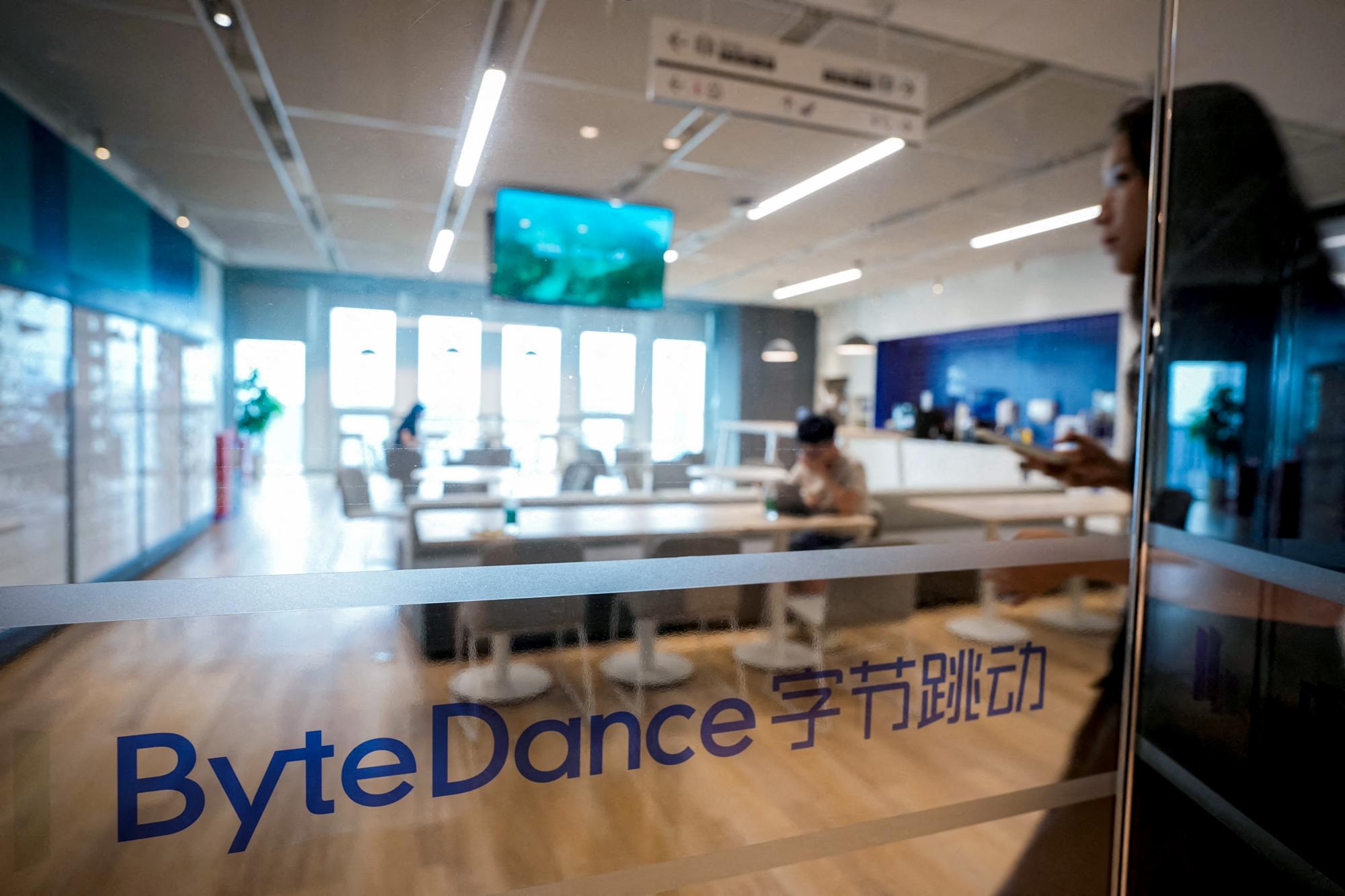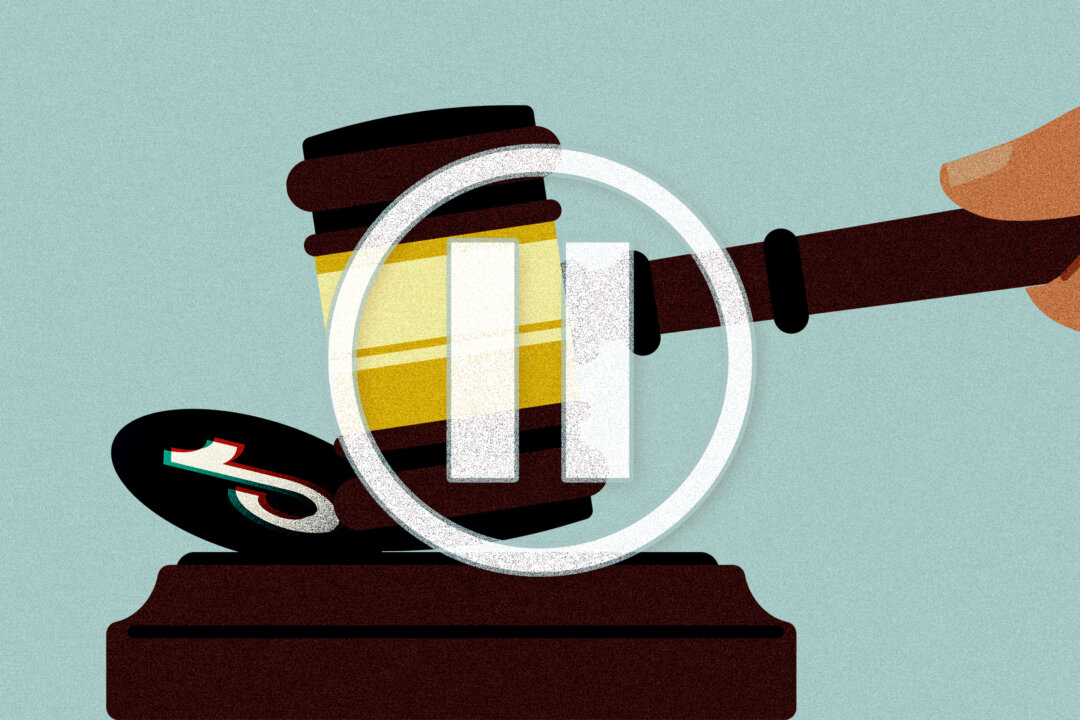Trump has signed an order to halt enforcement for 75 days.
President Donald Trump has prompted TikTok to restore service for its users despite a divest-or-ban law from Congress but questions remain as to whether the executive order will withstand judicial scrutiny or allow tech companies to avoid liability.
Here is a breakdown of the law, Trump’s order, and surrounding legal issues.
1. What Is the TikTok Ban-or-Divest Law?
Congress passed the Protecting Americans from Foreign Adversary Controlled Applications Act last year with bipartisan support amid concerns about national security and data privacy concerns due to TikTok’s ties to the Chinese communist regime.
The Chinese-owned app, like all other firms in China, is required by law to hand over data to regime authorities upon request.
President Joe Biden signed the bill into law in April 2024. It could apply to other platforms but specifically mentions TikTok and its parent company, ByteDance, in the text.
Because of the law, ByteDance was required to either shut down the app in the United States or sell it to a different company within 270 days after its enactment—by Jan. 19, 2025. That deadline was just before Trump took office on Jan. 20.
Trump has said that the timing was “unfortunate” and “interferes with my ability to negotiate a resolution to avoid an abrupt shutdown of the TikTok platform while addressing national security concerns.”
The law also contains a provision allowing the president to issue a one-time, 90-day extension delaying enforcement if certain conditions are met.
2. What Did Trump’s Order Do?
On Jan. 20, the president signed an executive order that directed the attorney general not to enforce the law for 75 days.
He also directed the Department of Justice (DOJ) to tell tech companies that there was no liability for hosting or servicing TikTok during that time.
It also states there’s no liability between Jan. 19 and the signing of the order about 24 hours later.
During his first term, Trump signed an order aimed at shutting down TikTok on national security grounds, but he has since changed his mind.

“TikTok is largely young people,” Trump said from the White House on Jan. 20 when he signed the new order.
“I guess I have a warm spot for TikTok that I didn’t have originally.” When asked why he changed his mind, he said: “Because I got to use it.”
3. What Happened on Jan. 19?
TikTok went offline on Jan. 18 in anticipation of the Jan. 19 deadline, but quickly began restoring service the following day based on Trump’s assurances.

“We thank President Trump for providing the necessary clarity and assurance to our service providers that they will face no penalties providing TikTok to over 170 million Americans and allowing over 7 million small businesses to thrive,” the platform said on social media on Jan. 19.
On TruthSocial, Trump had posted that he would issue an executive order delaying enforcement and suggesting a joint venture whereby the U.S. has a 50 percent ownership position.
Sen. Tom Cotton (R-Ark.) responded to TikTok on social media, warning about potential financial punishment.
“Any company that hosts, distributes, services, or otherwise facilitates communist-controlled TikTok could face hundreds of billions of dollars of ruinous liability under the law, not just from DOJ, but also under securities law, shareholder lawsuits, and state [attorneys general],” Cotton said.
TikTok was removed from the Apple and Google app stores. Apple said on Jan. 19 that it was “obligated to follow the laws in the jurisdictions where it operates.”
4. Can Trump Extend the Deadline?
While Trump’s order stated that liability wouldn’t extend to the period before its signing, it’s unclear how that will stand up in court.
Legal experts have suggested that TikTok and others might face consequences even with Trump’s order.
Among the legal questions involved is whether Trump is allowed to issue an extension after the Jan. 19 deadline.

“I think there are definitely going to be some legal issues with that particular executive order,” Montana Attorney General Austin Knudsen said during a press call on Jan. 21.
“And to me, I think that’s probably the easiest one that’s going to get challenged is—does he have the authority to extend the enforcement deadline?
“Can you change the due date on that final exam paper after the exam paper was due?”
Knudsen added that he thinks Trump is likely to “get a deal done” over TikTok.
Alex Urbelis, general counsel for the Ethereum Name Service, told The Epoch Times: “This issue is legally complex and it is frankly unclear from the text of the law whether the president can make this extension when the initial 270 days have already passed, or whether that extension must have been made within the 270-day window.”
Urbelis represented TikTok employees challenging the Trump administration’s executive order to ban TikTok in 2020. That order was blocked by a court and eventually reversed by President Joe Biden, who went on to sign the divest-or-ban law last year.
When Trump signed the order, he said: “We have 90 days” to make a decision about whether to salvage TikTok or “close it.”
It’s unclear, however, whether his order qualifies as part of the 90-day extension provided by the law.

5. What Would a Deal Look Like?
It’s unclear what the eventual deal will look like if it happens.
Trump said on Jan. 20 it include a private sector owner and that it could include some kind of policing of the platform by the United States.
“I could see making a deal where the United States gets 50 percent of TikTok—polices it a little bit or a lot, depends on them,” he said.
The law defines a “qualified divestiture” as a transaction that the president determines would result in a foreign adversary-controlled application like TikTok no longer being controlled by a foreign adversary.
It also requires that the transaction precludes an operational relationship between the United States, an application, and formerly affiliated entities—including over content recommending algorithms and data sharing.
University of California, Berkeley Law Professor John Yoo has said the law would not allow a joint venture where the Chinese Communist Party continues to exercise influence.
“It’s not even clear that 50 percent U.S. ownership would count as a divestiture under the statute,” he said during the call with Knudsen. “50 percent doesn’t give you full control of the company, and that seems to be what the statute requires.
“It doesn’t allow for continuing Chinese Communist Party influence through a 50 percent share of the company.”
China’s ruling communist party has said it firmly opposed selling TikTok. At the same time, U.S.-based enterprises remain banned in China.
Trump has suggested he might employ tariffs to compel China to approve the sale.

6. How Might the Executive Order Be Defended in Court?
The Supreme Court reviewed the legal aspects of the ban and upheld it in January in a unanimous decision. The court held that the act did not violate the First Amendment.
“TikTok’s scale and susceptibility to foreign adversary control, together with the vast swaths of sensitive data the platform collects, justify differential treatment to address the government’s national security concerns,” the high court said in a per curiam or unsigned opinion.
In an amicus brief, then-President-elect Trump suggested the court consider halting enforcement based on the powers he would assume when entering office just a day after the law was set to take effect.
If that brief and his order are any indication, his administration will likely defend the 75-day pause in court by citing his authority under Article II of the Constitution.
“I have the unique constitutional responsibility for the national security of the United States, the conduct of foreign policy, and other vital executive functions,” his order read.
Trump has also indicated that the divestiture requirements infringe on his authority because they force him to make determinations through an “interagency process.”
“At the very least, if the president’s authority is bound by the recommendations or conclusions of such an ‘interagency process,’ the provision would raise grave Article II concerns,” his amicus brief this month read.
Article II refers to the section of the Constitution that vests executive authority in the president.

7. Can Tech Companies Avoid Liability?
The divest-or-ban law imposes a penalty of $5,000 per user on entities that “have accessed, maintained, or updated a foreign adversary controlled application as a result of such violation.”
If the administration faces a lawsuit, the legal battle would likely unfold while leaving open the question of whether companies that work with TikTok face large penalties.
Cotton’s statement warning of liability came before Trump’s order but also was in response to TikTok thanking Trump for “providing the necessary clarity and assurance to our service providers that they will face no penalties.” Earlier that day, Trump had made his post on TruthSocial, promising a forthcoming executive order.
Terri Wu contributed to this report.



